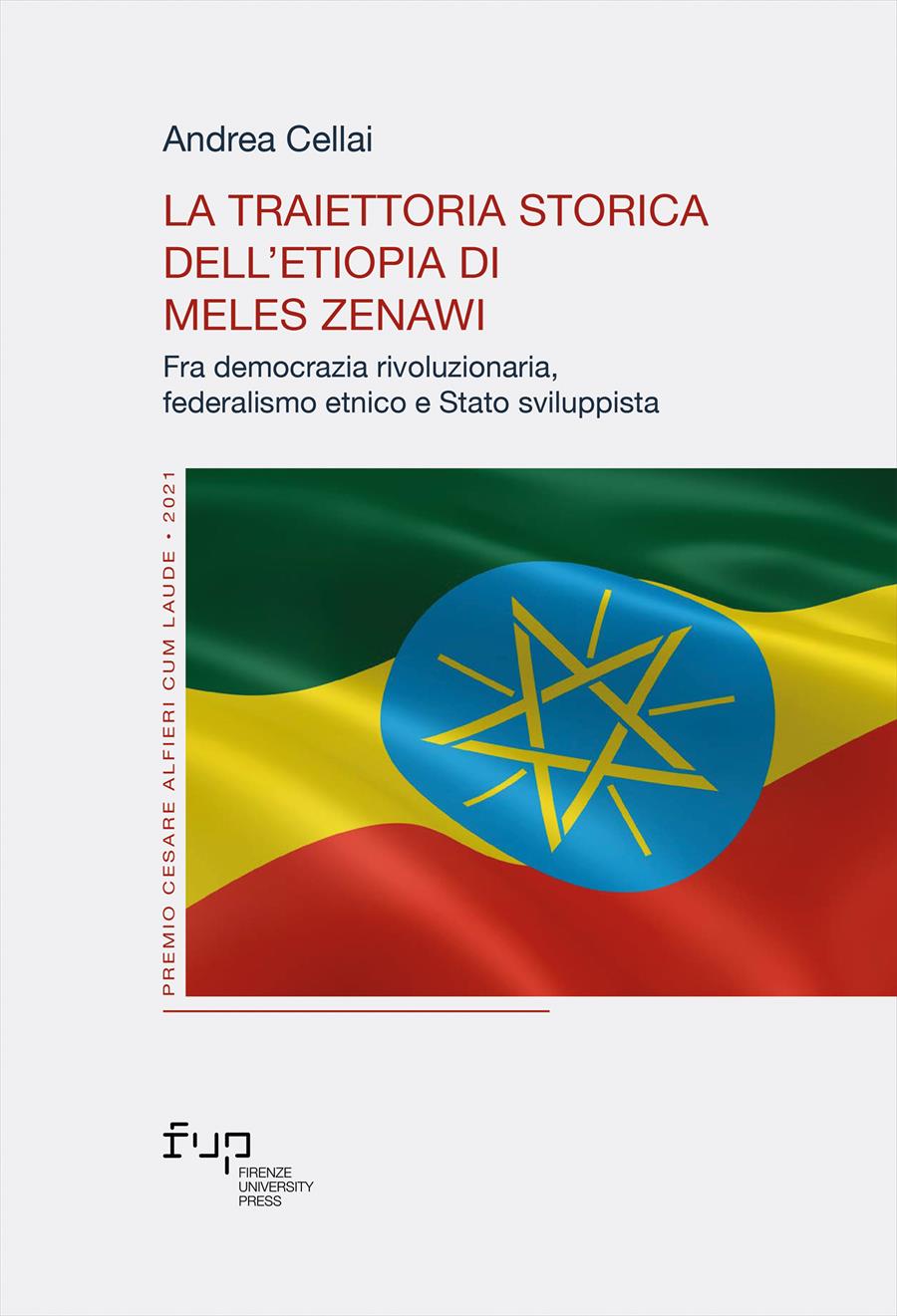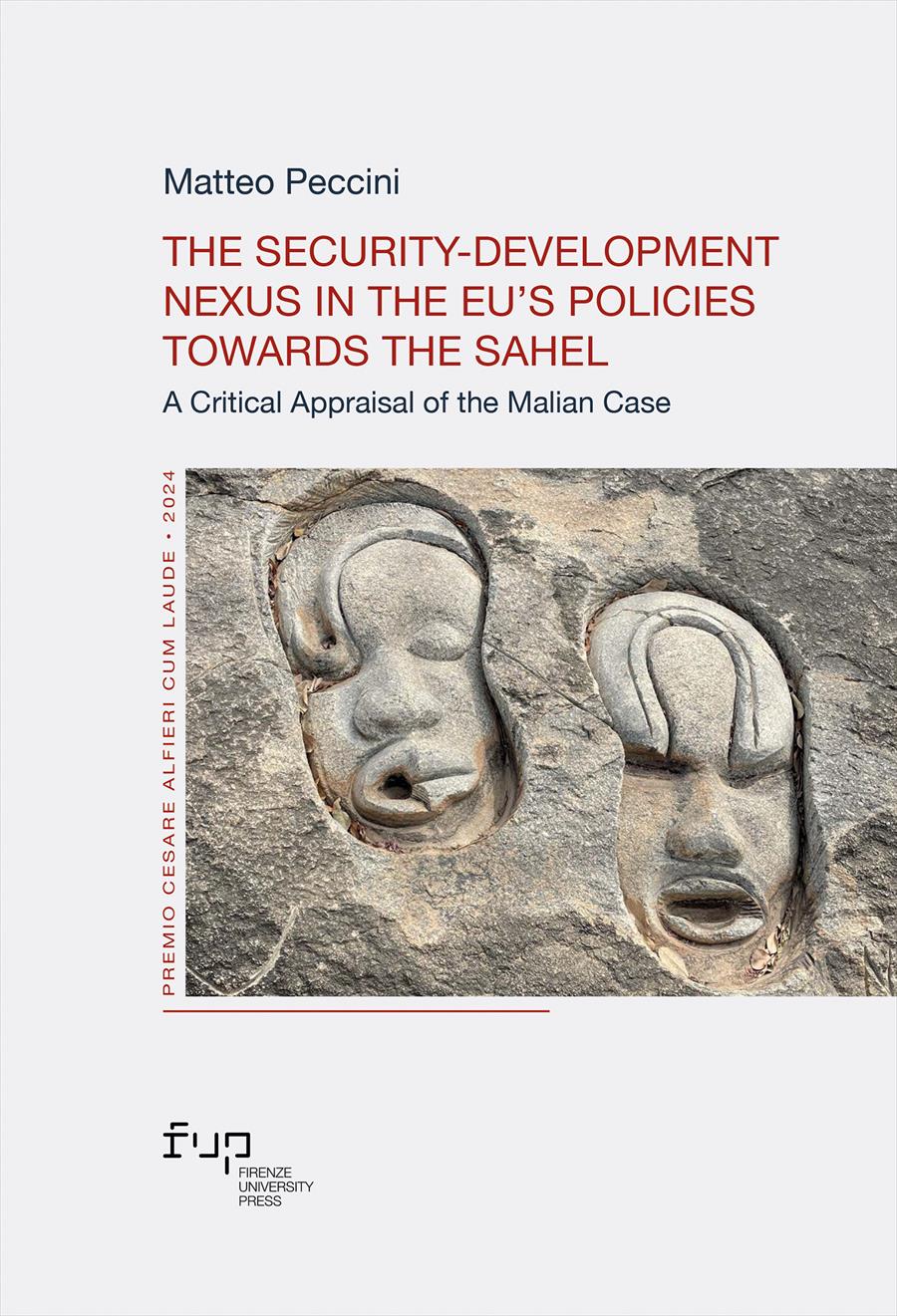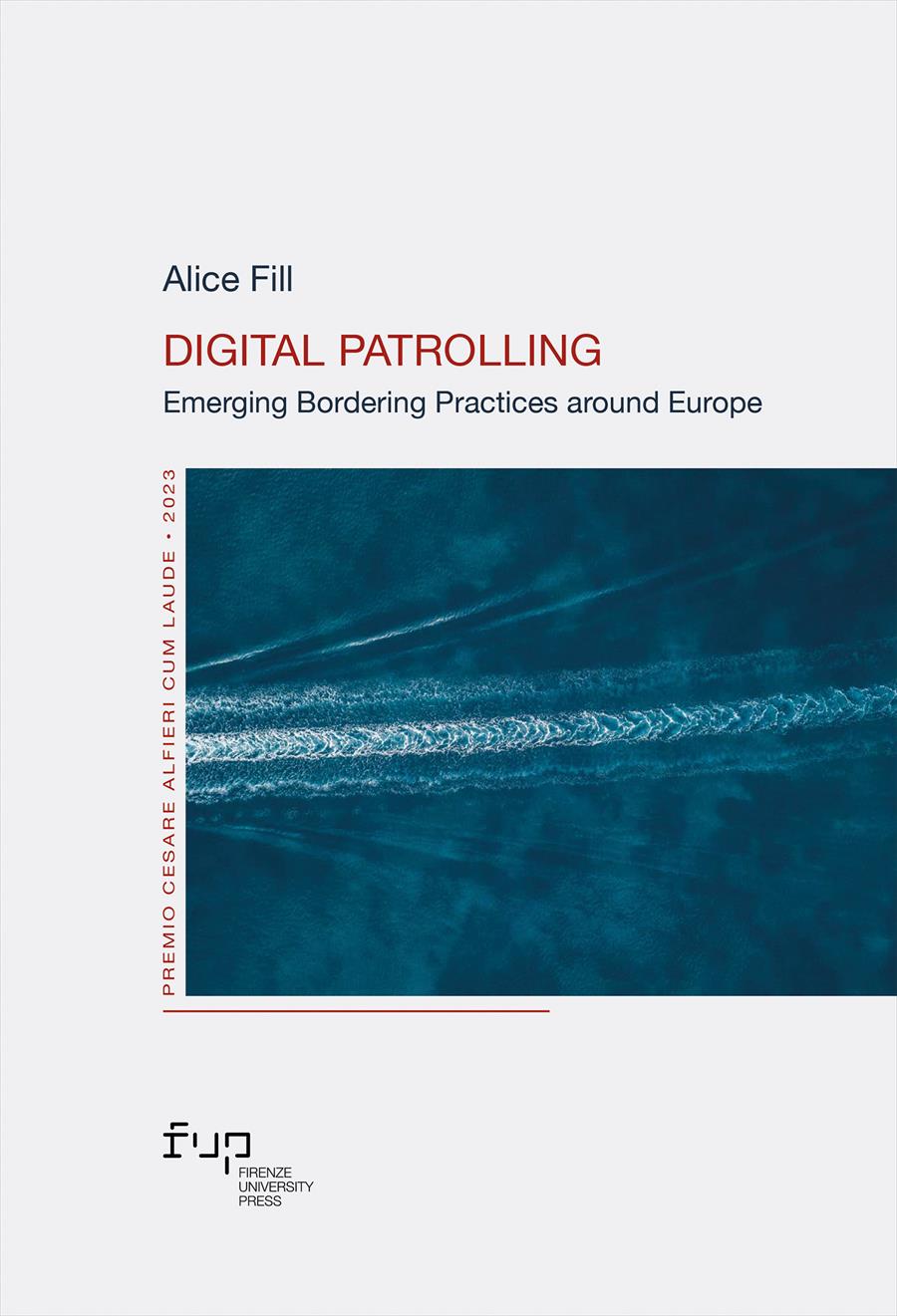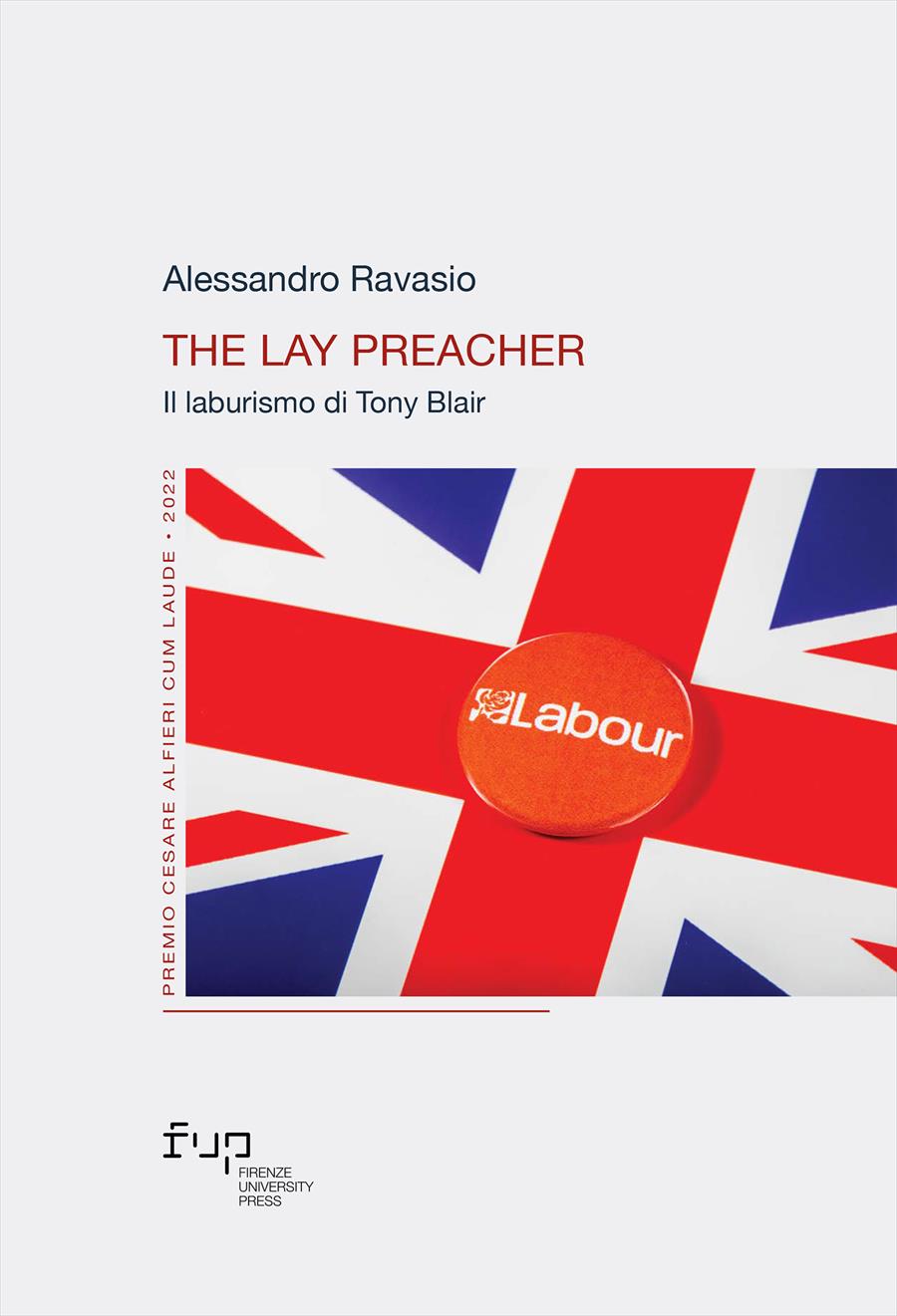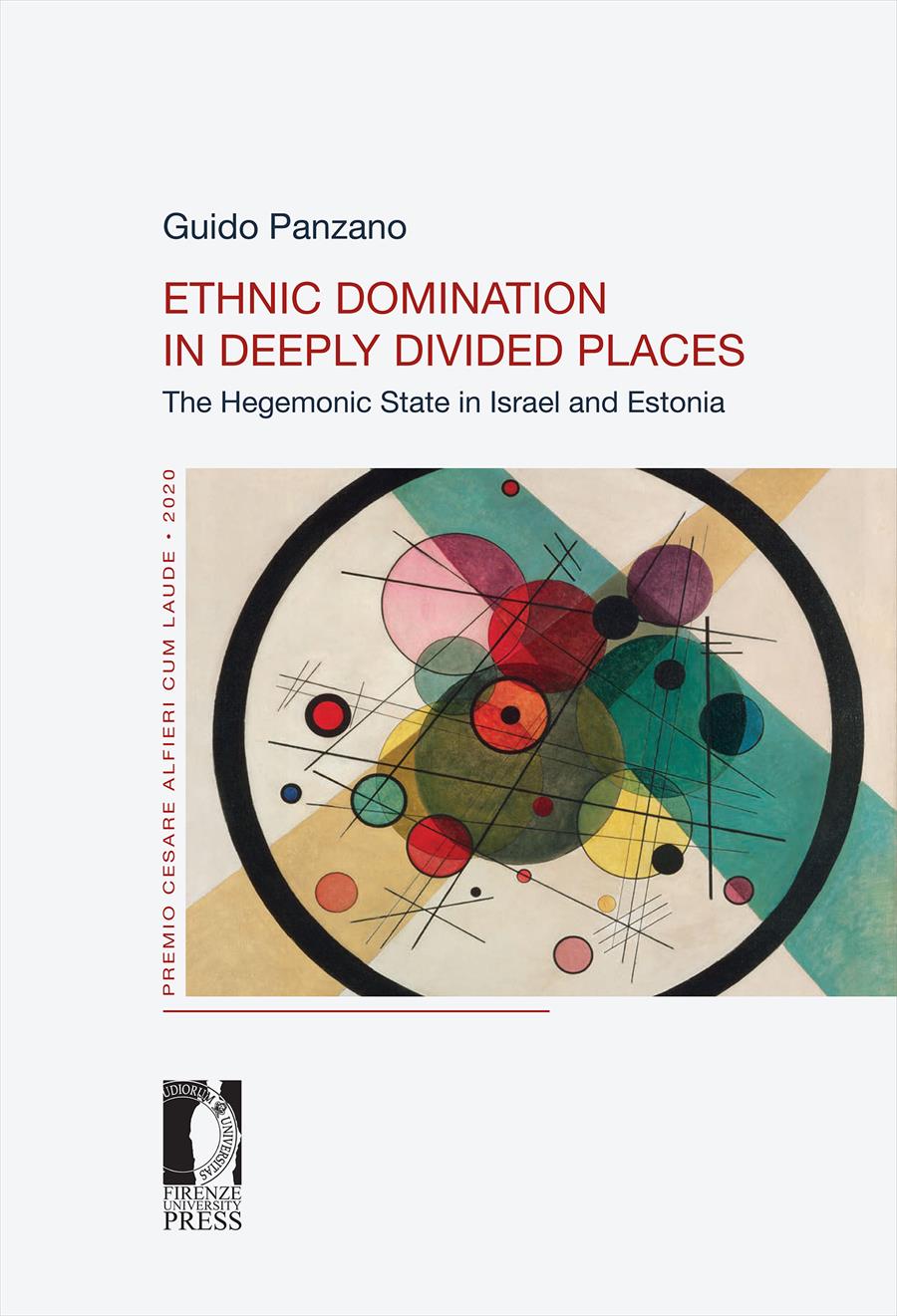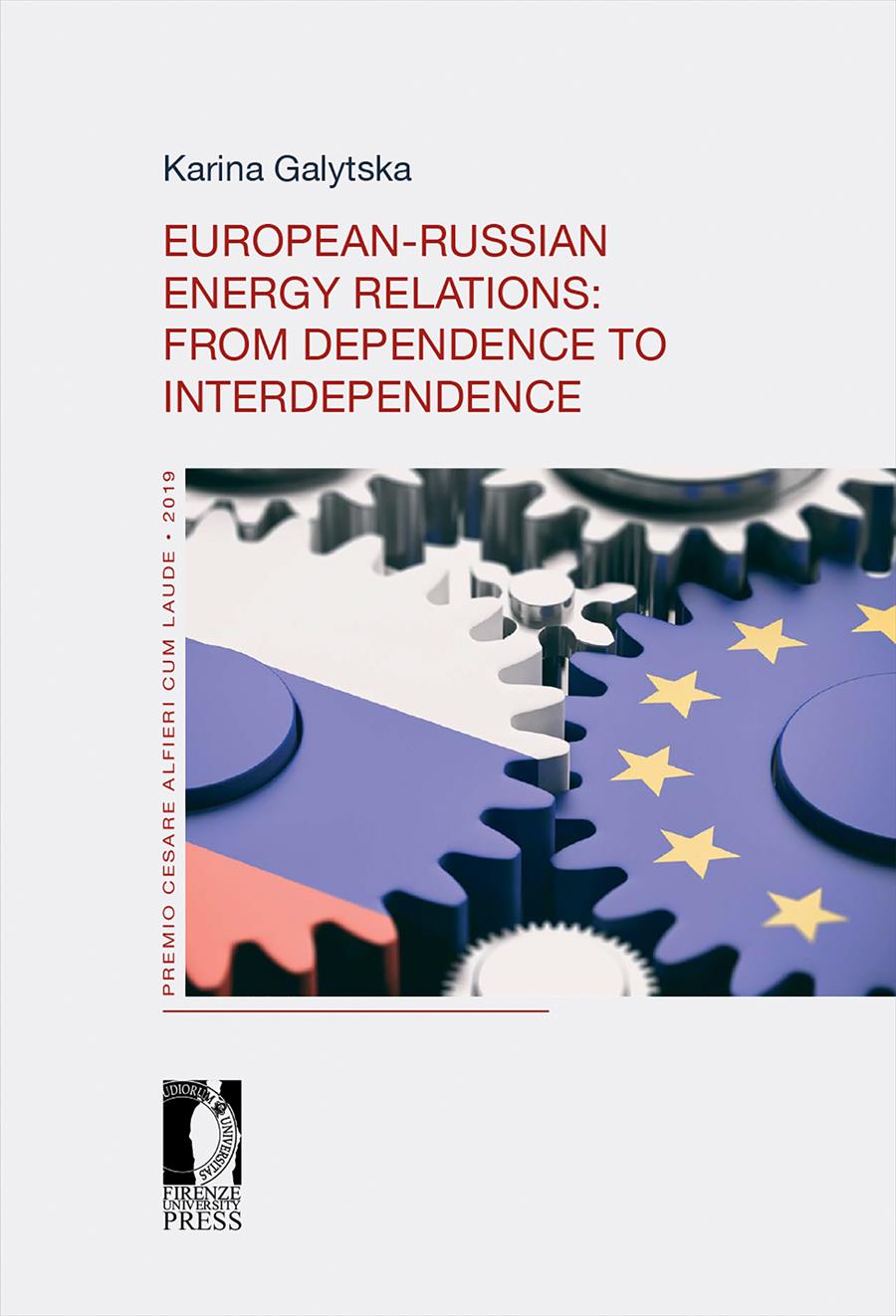La traiettoria storica dell’Etiopia di Meles Zenawi
Fra democrazia rivoluzionaria, federalismo etnico e Stato sviluppista
- Andrea Cellai,
Il volume presenta un inquadramento storico dell’Etiopia contemporanea. Particolare attenzione è data alle dinamiche economico-politiche dal cambio di regime nel 1991 alla morte dello storico leader del TPLF Meles Zenawi nel 2012.
Attraverso un’analisi nell’ottica braudeliana della lunga durata, si esamina l’Impero Etiopico sotto Haile Selassie, la Rivoluzione Etiopica del 1974, che portò al governo la giunta militare di stampo sovietico del Derg e la guerra civile che ne scaturì con il movimento guerrigliero maoista del TPLF. Inoltre, si delinea il regime del TPLF mediante un esame dei suoi tre concetti portanti – democrazia rivoluzionaria, federalismo etnico e stato sviluppista – e delle tre teorie che lo definiscono – neo-patrimonialismo, capitalismo avanguardista e mercato politico.
- Parole chiave:
- Ethiopia,
- History and Politics of Contemporary Africa,
- Marxism,
- Post-Insurgent States,
- Developmental State,
- DOI: 10.36253/978-88-9273-979-6
- Collana: Premio Cesare Alfieri «Cum Laude»
- Comitato scientifico
- Lingua: Italiano
- Argomento: Scienza politica
University of Pisa, Italy - ORCID: 0000-0002-9692-5686
- Aalen, Lovise. 2020. “The Revolutionary Democracy of Ethiopia: A Wartime Ideology both Shaping and Shaped by Peacetime Needs”. Government and Opposition, 55 (4), 653-688. DOI: 10.1017/gov.2018.54
- Aalen, Lovise e Kjetil Tronvoll. 2009. “The End of Democracy? Curtailing Political and Civil Rights in Ethiopia”. Review of African Political Economy, 36 (120), 193-207. DOI: 10.1080/03056240903065067
- Aalen, Lovise e Kjetil Tronvoll. 2008. “The 2008 Ethiopian Local Elections: The Return of Electoral Authoritarianism”. African Affairs, 108 ( 430), 101-120. DOI: 10.1093/afraf/adn066
- Abbink, John. 1983. Review: Oromo Religion, Myths and Rites of the Western Oromo of Ethiopia - An Attempt to Understand, di Lambert Bartels, Anthropos.
- Abbink, Jon. 2006. “Discomfiture or Democracy? The 2005 Election Crisis in Ethiopia and its Aftermath”. African Affairs, 105 (419), 173-199.
- Abbink, Jon. 2009. “The Ethiopian Second Republic and the Fragile “Social Contract””. Africa Spectrum, 44 (2), 3-28. DOI: 10.1177/000203970904400201
- Abbink, Jon. 2015. “The Ethiopian Revolution after 40 years (1974-2014): Plan B in Progress?”. Journal of Developing Societies, 31 (3), 333-357. DOI: 10.1177/0169796X15590321
- Abebe Gellaw. 2010. “2010 Ethiopia’s embarrassing elections”, Wall Street Journal, 1 giugno 2010.
- Adejumobi, Saheed A. 2007. The History of Ethiopia. Londra: Greenwood Press.
- Adem Kassie, Abebe. 2011. “Human Rights Under The Ethiopian Constitution: A Descriptive Overview”. Journal of Mizan Law Review, 5 (1), 41-71. DOI: 10.4414/MLR.V5I1.68768
- Adulis. 1985. “Editoriale”, vol. 2, no. 2, agosto 1985.
- Alemu, Getnet Zewdu. 2014. “Financial Inclusion, Regulation and Inclusive Growth in Ethiopia”. ODI working paper 408.
- Ali, Daniel Ayalew e Klaus Deininger. 2015. “Is There a Farm Size- Productivity Relationship in African Agriculture? Evidence from Rwanda”. Land Economics, 91 (2), 317-343. DOI: 10.3368/le.91.2.317
- Altenburg, Tilman. 2010. “Industrial Policy in Ethiopia”, German Development Institute, Discussion Paper 2.
- Anbessie, Genet Ayele. 2002. Reminiscences of Lt. Colonel Mengistu Haile Mariam. Addis Abeba: Mega Printers
- Arrighi, Giovanni. 2007. Adam Smith in Beijing: Lineages of the Twenty First Century. London-New York: Verso
- Arrighi, Giovanni. 1999. I cicli sistemici di accumulazione. Le trasformazioni egemoniche dell'economia-mondo capitalistica. Catanzaro: Rubbettino
- Arriola, Leonardo R. 2005. “Ethnicity, Economic Conditions, and Opposition Support: Evidence from Ethiopia’s 2005 Elections”, International Conference on African Development Archives, 85.
- Assefa, Getachew. 2009. “Human and Group Rights Issues in Ethiopia: A Reply to Kjetil Tronvoll”, International Journal on Minority and Group Rights, 16, 245-259. DOI: 10.1163/157181109X427752
- Assefa, Getachew. 2011. “Understanding the Distinction between Human Rights Violations per se and those Ethnically-Motivated: A Reply to Kjetil Tronvoll’s Rejoinder”. International Journal on Minority and Group Rights, 18 (01), 123-127. DOI: 10.1163/157181111X551021
- Association for Human Rights in Ethiopia, CIVICUS: World Alliance for Citizen Participation, Civil Rights Defenders, DefendDefenders (East and Horn of Africa Human Rights Defenders Project), Ethiopia Human Rights Project, Freedom House, Front Line Defenders, Global Centre for the Responsibility to Protect, Human Rights Watch, International Federation for Human Rights (FIDH), International Service for Human Rights, Reporters Without Borders, World Organization Against Torture (OMCT), “Addressing the Pervasive Human Rights Crisis in Ethiopia. Letter to the UN Human Rights Council”. Ginevra, 25 maggio 2017.
- Bach, Jean-Nicolas. 2012. “Abyotawi Democracy: neither revolutionary nor democratic, a critical review of EPRDF’s conception of revolutionary democracy in post-1991 Ethiopia”. Journal of Eastern African Studies, 5 (4), 641-663. DOI: 10.1080/17531055.2011.642522
- Bach, Jean-Nicoas. 2014. “EPRDF’s Nation-Building: Tinkering with convictions and pragmatism”. Centro de Estudos Africanos, 27 (27), 104-126. DOI: 10.4000/cea.1501
- Baxter, P.T.W., Hultin, Jan e Alessandro Triulzi, a cura di. 1996. Being and becoming Oromo. Historical and Anthropological Enquiries. Uppsala: Nordiska Afrikainstitutet
- BBC, Clean sweep for Ethiopian Party, 19 maggio 2008.
- Bekele, Yeshtila Wondemeneh, Kjosavik, Darley Jose e Nadarajah Shanmugaratnam. 2016. “State-society Relations in Ethiopia: A Political-Economy Perspective of the Post-1991 Order”. Social Sciences MDPI, 5 (3), 1-19. DOI: 10.3390/socsci5030048
- Berhe, Aregawi. 2009. Political History of the TPLF (1975-1991): Revolt, Ideology and Mobilisation in Ethiopia. Los Angeles: Tschai Publishers.
- Bleys, Brent. 2012. “Beyond GDP: Classifying Alternative Measures for Progress”. Social Indicators Research: An International and Interdisciplinary Journal for Quality-of-Life Measurement, 109 (3), 355-376. DOI: 10.1007/s11205-011-9906-6
- Booth, David e Frederick Golooba-Mutebi. 2011. “Developmental Patrimonialism? The Case of Rwanda”. African Affairs, 111 (444), 379-403. DOI: 10.1093/afraf/ads026
- Bourdieu, Pierre. 1967. Postfazione in Panofsky, Erwin. Architecture gothique et pensée scolastique. Parigi: Minuit.
- Bourdieu, Pierre e Richard Figuier. 1979. Esquisse d'une théorie de la pratique: Précédé de Trois études d'ethnologie kabyle. Genève: Points.
- Braudel, Fernand. 1958. “Histoire et Sciences Sociales: La longue durée”. Annales. Économies, Sociétés, Civilisations, 13 (4), 725-753. DOI: 10.3406/ahess.1958.2781
- Braudel, Fernand. (1977) 1981. La dinamica del capitalismo. Bologna: Il Mulino.
- Brietzke, Paul H. 1995. “Ethiopia’s Leap in the Dark: Federalism and Self-Determination”, Journal of African Law, 39 (1), 19-38. DOI: 10.1017/S0021855300005866
- Brown, Stephen e Jonathan Fisher. 2019. “Aid donors, democracy and the developmental state in Ethiopia”. Democratization, 27 (2), 185-203. DOI: 10.1080/13510347.2019.1670642
- Caldentey, Esteban Perez. 2008. “The Concept and Evolution of the Developmental State”. International Journal of Political Economy, 37 (3), 27-53. DOI: 10.2753/IJP0891-1916370302
- Calvary, Romain. 2014. “Les Investissements Saoudiens dans la Corne de l’Afrique: l’exemple de Mohamed Al Amoudi, Homme d’Affaires Saodien en Ethiopie”, Confluences Méditerranée, 3 (90), 61-74.
- Capital, 2001. “Stupid! It’s the Economy”, 7 ottobre, 2001.
- Capoccia, Giovanni e Daniel R. Kelemen, 2011. “The Study of Critical Junctures: Theory, Narrative, and Counterfactuals in Historical Institutionalism”. World Politics, 59 (3), 341-369. DOI: 10.1017/S0043887100020852
- Capra, Diego. 2014. L’Etiopia e il Cristianesimo: Una storia millenaria. Lalibelà e le chiese monolitiche ed ipogee. Laurea I ciclo (triennale). Università degli Studi di Padova.
- Carbone, Giovanni 2018. “Africa, Leader to watch 2019: Abiy Ahmed, Primo Ministro dell’Etiopia”. ISPI.
- Carta del Periodo Transizionale d’Etiopia. Addis Abeba, 22 luglio 1991.
- Carter Center, Post Election Statement, Atlanta, 16 maggio 2005.
- Cavalli-Sforza, Luigi Luca. 1996. Geni, popoli e lingue. Milano: Adelphi
- Cavalli-Sforza, Luigi Luca, Menozzi, Paolo e Alberto Piazza. 1997. Storia e geografia dei geni umani. Milano: Adelphi
- Chanie, Paulos. 2007. “Clientelism and Ethiopia’s Post-1991 Decentralisation”. The Journal of Modern African Studies, 45 (3), 355-384. DOI: 10.1017/S0022278X07002662
- Clapham, Christopher. 1988. Transformation and Continuity in Revolutionary Ethiopia. Cambridge: Cambridge University Press
- Clapham, Christopher. 2002. "Controlling Space in Ethiopia" in Remapping Ethiopia. Socialism and After, a cura di Wendy, James, Donham, Donald L., Kurimoto, Eisei e Alessandro Triulzi, 9-30. Oxford: James Currey.
- Clapham, Christopher. 2005. Comments on the Ethiopian Crisis, 7 novembre 2005.
- Clapham, Cristopher. 2006. “Ethiopian Development. The Politics of Emulation”. Commonwealth and Comparative Politics, 44 (1), 137-150. DOI: 10.1080/14662040600624536
- Clapham, Cristopher. 2009. “Post-War Ethiopia: The Trajectories of Crisis”. Review of African Political Economy, 36 (120), 181-192. DOI: 10.1080/03056240903064953
- Clapham, Cristopher. 2020. “The Ethiopian Developmental State”. Third World Quarterly, 39, 1151-1165. DOI: 10.1080/01436597.2017.1328982
- Cochrane, Logan e Bekele Y.W. 2018. Contextualizing narratives of economic growth and navigating problematic data: Economic trends in Ethiopia (1999.2017), Economies, 6 (4), 64.
- Cohen, John M., Goldsmith, Arthur A. e John Mellor. 1976. “Rural development issues following the Ethiopian land reform”. Africa Today, 23 (2), 7-28.
- Cohen, John M. e Peter Koehn. 1977. “Rural and urban land reform in Ethiopia”. The Journal of Legal Pluralism and Unofficial Law, 9, 3-62. DOI: 10.1080/07329113.1977.10756232
- Cohen, John M. 2011. “Ethnic Federalism in Ethiopia”. Northeast African Studies, 2 (2), 157-188. DOI: 10.1353/nas.1995.0016
- Comitato per l’Eliminazione della Discriminazione Razziale. 2007. “Consideration of Reports Submitted by State Parties Under Article 9 of the Convention: Concluding Observations of the Committee on the Elimination of Racial Discrimination: Ethiopia”. Ginevra, marzo 2007.
- Corda, Tiziana, Dentice, Giuseppe e Maddalena Procopio. 2018. “Cooperazione e Competizione degli Attori Mediorientali e Internazionali nel Corno d’Africa”. Osservatorio di Politica Internazionale, 141.
- Cornia, Giovanni Andrea. 1985. “Farm Size, Land Yields, and the Agricultural Production Function: An Analysis for Fifteen Development Countries”. World Development, 13 (4), 513-534. DOI: 10.1016/0305-750X(85)90054-3
- Costanza, Robert, Kubiszewski, Ida, Giovannini, Enrico, Hunter Lovins, McGlade, Jacqueline, Pickett, Kate E., Ragnarsdóttir, Vala Kristín, Roberts, Debra, De Vogli, Roberto e Richard Wilkinson. 2014. “Development: Time to leave GDP behind”. Nature, (505), 283-285. DOI: 10.1038/505283a
- Costanza, Robert, Hart, Maureen, Posner, Stephen e John Talberth. 2009. “Beyond GDP: The Need for New Measures of Progress”. The Pardee Papers, 4.
- de Waal, Alex. 2013a. “The Theory and Practice of Meles Zenawi”. African Affairs, 112 (446), 148-155. DOI: 10.1093/afraf/ads081
- de Waal, Alex. 2013b. “The Theory and Practice of Meles Zenawi: A reply to Rene Lefort”. African Affairs, 112 (448), 471-475. DOI: 10.1093/afraf/adt022
- de Waal, Alex. 2015. The real politics of the Horn of Africa: money, war and the business of power. Cambridge: Polity Press.
- Dejene, Melisew e Logan Cochrane. 2018. “Ethiopia’s developmental state: A building stability framework assessment”. Development Policy Review, 00, 1-18. DOI: 10.1111/dpr.12414
- Del Boca, Angelo. 1976-84. Gli Italiani in Africa Orientale. Vols. 1-4. Roma: Laterza.
- Demiessie, Habtamu Girma. 2019. “Revolutionary Democracy in Ethiopia: Origin, Evolution and Development”. Advance. Preprint. DOI: 10.31124/advance.8970623.v1
- Dias, Alexandra Magnolia. 2008. An inter-state war in the post-cold war era: Eritrea-Ethiopia (1998-2000). Ph.D. diss., London School of Economics and Political Science.
- Dürr, Jochen. 2016. “The Political Economy of Agriculture for Development Today: The ‘Small versus Large’ Scale Debate Revisited”. Agricultural Economics, 47 (6), 671-681. DOI: 10.1111/agec.12264
- English, John, Bennett, Jon e Caroline Fallon 1984. “Tigray 1984: An Investigation”. mimeo, OXFAM, Oxford.
- EPLF. 1987. “EPLF Political Report and NDP”, adottato al Secondo Congresso e al Congresso dell’Unità dell’EPLF e dell’ELF-Leadership Centrale, 16 marzo 1987.
- EPRDF. 1993. “Our Revolutionary Democratic Goals and the Next Step”. Ethiopian Register. 1993.
- EPRDF. 2001. “The Development Lines of Revolutionary Democracy”, traduzione parziale e non ufficiale in inglese di un documento in amarico, Addis Abeba, Mega, 2001
- EPRDF. 2006. “Development, Democracy and Revolutionary Democracy”. Addis Abeba, agosto 2006
- Ethiopian Economic Association (EEA). 2005. “Industrialization and industrial policy in Ethiopia”. Research Report, Addis Abeba, febbraio 2005.
- Ethiopian Economic Association (EEA). 2001. “Second Annual Report on the Ethiopian Economy: 2000/2001”, Addis Abeba, 2001.
- Ethiopian News Agency. 2010. “The EPRDF had won the election in a land mark victory getting 499 of the 547 federal parliamentary seats”, 21 giugno 2010.
- EU-EOM (European Union – European Observer Mission Ethiopia 2010). 2010. “Preliminary Statement”. Addis Abeba 25 maggio 2010.
- Evans, Peter B., Ruschemeyer, Dietrich e Theda Skocpol, a cura di. 1985. Bringing the State Back In. Cambridge: Cambridge University Press.
- E. Fantini, “Developmental state, economic transformation and social diversification in Ethiopia”. ISPI Analysis, 163.
- Fatokun, Samson A. 2005. “Christianity in Africa: a historical appraisal”. Verbum et Ecclesia, 26 (2), 357-368. DOI: 10.4102/ve.v26i2.229
- FDRE Autorità Statistica Centrale (CSA). 1999. “The 1994 Population and Housing Census of Ethiopia Results at Country Level Volume II Analytical Report”. CSA, Addis Abeba, giugno 1999.
- FDRE Autorità Statistica Centrale (CSA), “Ethiopia Statistical Abstract 2001”. Addis Abeba, marzo 2002.
- Federal Negarit Gazeta. 2003. “Trade Practice Proclamation”, Proclamazione 393/2003, 17 aprile 2003.
- Fortune. 2001. “At Last, parliamentarians lambast Privatization Agency”, febbraio 18, 2001 .
- Fortune, 2004.“Your party isn’t alone in this, Sir”, 15 febbraio, 2004.
- Foucher, Vincent. 2009. “Difficiles successions en Afrique subsaharienne: persistence et, reconstruction du pouvoir personnel”. Pouvoirs, 129, 127-137. DOI: 10.3917/pouv.129.0127
- Freedom House, The Unhappy Legacy of Meles Zenawi, 22 agosto 2012.
- Gashaw, Solomon. 1993. "Nationalism and Ethnic Conflict in Ethiopia." In The Rising Tide of Cultural Pluralism. The Nation-State at Bay, a cura di Young Crawford, 138-153. Madison: University of Wisconsin Press.
- Gebre Sellassie, Zewde. 1975. Yohannes IV of Ethiopia: A Political Biography. Oxford: ClarendonPress.
- Gebreeyesus, Mulu. 2008. “Firm turnover and productivity differentials in Ethiopian manufacturing”. Journal of Productivity Analysis, 29 (2), 113-129. DOI: 10.1007/s11123-007-0076-0
- Gebreeyesus, Mulu. 2013. “Industrial policy and development in Ethiopia: Evolution and present experimentation”. WIDER Working Paper 125.
- Gebregziabher, Tefera Negash. 2019. “Ideology and Power in TPLF’s Ethiopia: A Historical Reversal in the Making?”. African Affairs, 118 (472), 463-484. DOI: 10.1093/afraf/adz005.
- Gebru, Tareke. 1991. Ethiopia: Power and Protest, Peasant Revolts in the Twentieth Century. Cambridge: Cambridge University Press.
- Gebru, Tareke. 2009. The Ethiopian Revolution, War in the Horn of Africa. New Haven. Yale University Press.
- Gray, Hazel e Lindsay Whitfield. “Reframing African Political Economy: Clientelism, Rents and Accumulation as Drivers of Capitalist Transformation”. LSE International Development Working Paper Series 159, 15-159. https://www.research.ed.ac.uk/en/publications/reframing-african-political-economy-clientelism-rents-and-accumul
- Guglielmo, Matteo. 2013. Il Corno d'Africa. Eritrea, Etiopia, Somalia. Bologna: Il Mulino.
- Habtu, Alem. 2003. “Ethnic Federalism in Ethiopia: Background, Present Conditions and Future Prospects”. International Conference on African Development Archives, 57. https://scholarworks.wmich.edu/africancenter_icad_archive/57/
- Hagmann, Tobias e Jon Abbink. “Twenty years of revolutionary democratic Ethiopia, 1991 to 2011”. Journal of Eastern African Studies, 5 (4), 579-595. DOI: 10.1080/17531055.2011.642515
- Halabo, Temesgen Thomas. 2016. “Ethnic Federal System in Ethiopia: Origin, Ideology and Paradoxes”. International Journal of Political Science and Development, 4 (1), 1-15. DOI: 10.14662/IJPSD2016.004
- Hobsbawm, Eric. 1994. The Age of Extremes: A History of the World, 1914–1991. New York: Pantheon Books
- Human Rights Watch. 2007. “Suppressing Dissent. Human Rights Abuses and Political Repression in Ethiopia’s Oromia Region”. Washington DC, 2007.
- Human Rights Watch. 2008. “Ethiopia: repression set stage for non-competitive elections”. Washington DC, 2008.
- Human Rights Watch, World Report 2014: Ethiopia.
- Human Rights Watch, World Report 2019: Ethiopia.
- Human Rights Watch, Abiy Ahmed first year, 4 aprile 2019.
- Human Rights Watch, World Report 2020: Ethiopia.
- ICG. 2009. “Ethiopia: ethnic federalism and its discontents”. Africa Report, 153.
- IDA-IMF. 2011. “The Federal Democratic Republic of Ethiopia: Joint Staff Advisory Note on the Growth and Transformation Plan 2010/11–2014/15”. IMF Country Report, 11/303, Washington, ottobre 2011.
- Kelsall, Tim. 2010a. “Africa Literature Review for APPP Business and Politics Research Stream”. Paper non pubblicato, Africa Power and Politics Programme.
- Kelsall, Tim 2010b. “Concepts and Methods in the Study of Business and Politics”. Paper non pubblicato, Africa Power and Politics Programme.
- Kelsall, Tim. 2011. “Rethinking the Relationship Between Neo-patrimonialism and Economic Performance in sub-Saharan Africa”. IDS Bulletin, 42 (2), 76-87. DOI: 10.1111/j.1759-5436.2011.00213.x
- Kelsall, Tim, Booth, David, Cammack, Diana e Frederick Golooba-Mutebi. 2010. “Developmental Patrimonialism? Questioning the Orthodoxy on Political Governance and Economic Progress in Africa”. Africa Power and Politics Programme Working Paper, 9.
- Khan, Mushtaq. 2003. “State Failure in Developing Countries and Institutional Reform Strategies’”. Annual World Bank Conference on Development Economics, 165-195.
- Klobucista, Claire. 2018. Ethiopia: East Africa’s Emerging Giant. Council on Foreign Relations, Foreign Affairs, 5 ottobre 2018.ù
- Lefort, René. 2007. “Powers – Mengist – and Peasants in Rural Ethiopia: The May 2005 Elections”. The Journal of Modern African Studies, 45 (2) 253-272, DOI: 10.1017/S0022278X07002534.
- Lefort, René. 2010. “Powers – Mengist – and Peasants in Rural Ethiopia: the post-2005 Interlude”. Journal of Modern African Studies, 48 (3), 453-460. DOI: 10.1017/S0022278X10000297
- Lefort, René. 2013. “The Theory and Practice of Meles Zenawi: A Response to Alex De Waal”. African Affairs, 112 (448), 460-470. DOI: 10.1093/afraf/adt021
- Lefort, René. 2015. "The Ethiopian Economy, The Developmental State vs The Free Market" in Understanding Contemporary Ethiopia, Monarchy, Revolution and the Legacy of Meles Zenawi, a cura di Prunier, Gerard e Éloi Ficquet, 357-394. Londra: Hurst & Co.
- Lenin, Vladimir I. (1919) 1967. Opere Complete. Roma: Editori Riuniti
- Levine, Daniel N. 1974 .Greater Ethiopia: The Evolution of a Multiethnic Society. Chicago: Chicago University Press.
- Löwy, Michael. 2010. “Rosa Luxemburg et le communisme”. Actuel Marx, 2, 22-32. DOI: 10.3917/amx.048.0022
- Lyons, Terrence. 1996. “Closing the Transition: The May 1995 Elections in Ethiopia”. The Journal of Modern African Studies, 34 (1), 121-142. DOI: 10.1017/S0022278X00055233
- Markakis, John. 1974. Ethiopia: Anatomy of a Traditional Polity. Oxford: Clarendon Press.
- Markakis, John. 1987. National and Class Conflict in the Horn of Africa. Cambridge: Cambridge University Press.
- Massa, Aurora. “Things Change, but the Situation is Always the Same”. Continuities and Ruptures in the Border between Ethiopia and Eritrea”. Afriche e Orienti, XXII (2), 89-106.
- Marx, Karl. (1869) 2006. Il 18 brumaio di Luigi Bonaparte. Roma: Editori Riuniti.
- Meles, Zenawi. 2006. African Development: Dead Ends and New Beginnings. MA diss., University of Rotterdam.
- Meles Zenawi. 2008. “Speech to the Initiative for Policy Dialogue Africa Task Force meeting”, Mancherster University 3-4 agosto 2008.
- Meles, Zenawi. 2011. “States and Markets: Neoliberal Limitations and the Case for the Developmental State”. Good Growth and Governance in Africa: Rethinking Development Strategies, 140-174. DOI: 10.1093/acprof:oso/9780199698561.003.0005
- Merera, Gudina. 2002. Ethiopia: competing ethnic nationalism and the quest for democracy, 1960-2000. Ph.D. diss., International Institute of Social Studies The Hague.
- Mesfin, Berouk. 2010. “The Horn of Africa as a Security Complex: Towards a Theoretical Framework”. Institute for Security Studies, African Conflict Prevention Programme.
- Mesfin, Wolde-Mariam. 1991. Suffering under God's Environment: A Vertical Study of the Predicament of Peasants in North-Eastern Ethiopia. Berne: African Mountains Association.
- MIA. 1988. “Minutes of the 87th Regular Meeting of the Politburo”, martedì 16 agosto, 1988.
- Milkias, Paulos. 2008. “Ethiopia, the TPLF, and the Roots of the 2001 Political Tremor”. Northeast African Studies, 10 (2), 13-66. DOI: 10.1353/nas.0.0003
- Ministero degli Esteri Etiopico, Addis Abeba, Comunicato stampa, 28 agosto 2007.
- Ministero degli Esteri Etiopico. 2008. “A week in the Horn”. Comunicato stampa, 18 aprile 2008
- Ministero della Finanza e dello Sviluppo Economico Etiopico. 2010. “Growth and Transformation Plan”. novembre 2010
- Myrdal, Gunnar. 1944. An American Dilemma: Negro Problem and Modern Democracy. New York: Harper & Row.
- National Democratic Institute. 1992. “An Evaluation of the June 21, 1992 Elections in Ethiopia”. Washington, 1992.
- National Planning Commission. 2017. “The 2017 voluntary national reviews on SDGs of Ethiopia: Government commitments, national ownership and performance trends”. Addis Abeba, 2017.
- Nietzsche, Friedrich Wilhelm. (1878) 1979. Umano, Troppo Umano (vol. 1). Milano: Adelphi.
- North, Douglas C., Wallis, John Joseph e Barry R. Weingast. 2009. Violence and Social Orders: A Conceptual Framework for Interpreting Recorder Human History. Cambridge: Cambridge University Press.
- Ohashi Ken. 2009. “Is Ethiopia in a low productivity trap?”, Addis Fortune, 4 dicembre 2009.
- Ohno, Kenichi e Izumi Ohno. 2015. Eastern and Western Ideas for African Growth: Diversity and Complementarity in Development Aid. Londra: Routledge.
- Olson, Mancur. 1993. “Dictatorship, Democracy and Development”. American Political Science Review, 87 (3), 567-576. DOI: 10.2307/2938736
- Ojo O. e T. Ramtoolah. 2000. “Ethiopia, Structural Adjustment Programme”. Project Performance Evaluation Paper (PPER), African Development Bank Group
- Open Democracy, The journalist as terrorist: an Ethiopian story.
- Organizzazione per l’Unità Africana (OAU). 1995. “Statement by the OAU Observer Group to Ethiopia’s Federal and Regional Council Elections”. Addis Abeba, 12 maggio 1995.
- Otieno Daniel. 2019. “After making peace, Ethiopia and Eritrea now focus on development”. United Nations Department of Public Information, Africa Renewal, dicembre 2018- marzo 2019.
- Ottaway, Marina. 1977. “Land Reform in Ethiopia 1874-1977”. African Studies Review, 20 (3), 79-90. DOI: 10.2307/523755
- Oxford Poverty and Human Development Initiative (OPHI). “Country Briefing: Ethiopia”. Multidimensional Poverty Index Data Bank, University of Oxford, 2013
- Planel, Sabine e Marie Bridonneau. 2015. “Glocal Ethiopia: Scales and Power Shifts”. EchoGéo, 31 (31). DOI: 10.4000/echogeo.14219
- Porter Michael. 2008. “The Five Competitive Forces that Shape Strategy”, Harvard Business Review, gennaio 2008.
- Prunier, Gerard. 2015. "The Meles Zenawi Era, From Revolutionary Marxism to State Developmentalism" in Understanding Contgemporary Ethiopia, Monarchy, Revolution and the Legacy of Meles Zenawi, a cura di Prunier, Gerard e Éloi Ficquet, 415-437. Londra: Hurst & Co.
- Radelet, Steven. 2010a. “Emerging Africa, How 17 countries are leading the way”. Centre for Global Development.
- Radelet, Steven. 2010b. “Success Stories from «Emerging Africa»”. Journal of Democracy, 21 (4), 87-101. DOI: 10.1353/jod.2010.0000
- A.Raffoul, V. Raju, Ethiopia is Africa’s new growth engine, World Economic Forum Agenda Blog, 6 settembre 2019.
- Reporters Without Borders, World Press Freedom Index 2011/12.
- Reporters Without Borders, World Press Freedom Index 2019.
- Reuters. 1995. “Opposition Bows Out of Elections”, 5 maggio 1995.
- Reuters. 1995. “Ruling Coalition Wins Ethiopia Vote”, 9 maggio 1995.
- M. Roser, Economic Growth, OurWorldInData, 2020.
- P. Rossi, Definizione di Scienze Sociali, Enciclopedia Treccani delle Scienze Sociali, 1997.
- Schaffnit-Chatterjee, Claire. 2013. “Ethiopia: The African Tiger”. Talking Point. Deutsche Bank Research. October 14, 2013.
- H. Stein, Asian Industrial Development and Economic Reform in Africa, paper presentato all’incontro dell’Associazione degli Studi Internazionali nel febbraio 1995.
- Sudan Tribune. 2008. “Hundred killed during clashes between Gumuz and Oromos in Ethiopia”, 24 maggio 2008.
- M. Tadesse, Meles Zenawi and the Ethiopian State, Understanding the late prime minister and his dream for the nation, 24 ottobre 2014.
- Tadesse, Medhane e John Young. 2003. “TPLF: Reform or Decline?”. Review of African Political Economy, 30 (97), 389-403. DOI: 10.1080/03056244.2003.9659773
- Tekeste, Negash. 1997. Eritrea and Ethiopia. The Federal Experience. Uppsala: Nordiska Afrikainstitutet.
- Teshale, Tibebu. 1995. The making of modern Ethiopia: 1896-1974. Trenton: The Red Sea Press.
- Tilly, Charles. 1990. Coercion, Capital and European States, AD 990-1992. Oxford: Blackwell.
- The Ethiopian Herald. 1992. “President Meles Zenawi replies to questions posed by journalists”, 25 settembre 1992.
- The Middle East. 1980. “Ethiopia's Widening Cracks”, The Middle East, settembre 1980.
- The Reporter. 2007. “Al-Amoudi expresses delight over millennium celebrations”, settembre 29, 2007.
- The Reporter. 2014. “GTP II is where things will be happening”, agosto 16, 2014.
- The Washngton Post. 1995. “Ethiopia Takes New Ethnic Tack: deliberately divisive”, 18 giugno 1995.
- TPLF/EPRDF. 1996. “TPLF-EPRDF’s Strategies for Establishing its Hegemony and Perpetuating its Rule, English Translation of a 1994 document in Amharic”. Ethiopian Register, vol. 3 n. 6, 1996.
- Tronvoll, Kjetil. 2008. “Human Rights Violations in Federal Ethiopia: When Ethnic Identity is a Political Stigma”. International Journal of Minority and Group Rights, 15 (1), 49-79. DOI: 10.1163/138548708X272528
- Tronvoll, Kjetil. 2009. “Interpreting Human Rights Violations in Ethiopia: A Rejoinder to Getachew Assefa”. International Journal on Minority and Group Rights, 16 (3), 475-479. DOI: 10.1163/138819009X12474964197836
- Tronvoll, Kjetil. 2009. War & The Politics of identity in Ethiopia. The making of enemies & allies in the Horn of Africa. Londra: James Currey.
- Tronvoll, Kjetil. 2010. “The Ethiopian 2010 federal and regional elections: Re-establishing the one-party state”. African Affairs, 110 (438), 121-136. DOI: 10.1093/afraf/adq076
- Trotsky, Leon. 1979. How the Revolution Armed. The Military Writings and Speeches of Leon Trotsky. Londra: New Park Publications
- Tuden, Arthur e Leonard Plotnicov. 1970. Social Stratification in Africa. New York: The Free Press.
- Tungodden, Bertil, Stern, Nicholas e Ivar Kolstad. 2003. Toward Pro-Poor Policies. Aid, Institutions, and Globalization. Washington: World Bank e Oxford University Press.
- Ufficio per la Comunicazione degli Affari Governativi (OGCA). 2008. “No Amount of External Pressure can Force Ethiopia”.
- UN, World population prospects: The 2015 revision, 2015.
- UNCTAD. 2009. “The Least Developed Countries Report 2009 – The State and Development Governance”, United Nations Conference on Trade and Development, 2009.
- UNDP. 1999. “Ethiopia, Country Economic Brief”.
- UNDP. 1999. “Human Development Report”.
- UNDP, Ethiopia: Human Development Indicators, 2017.
- Understanding Meles Zenawi: Conversations with U.S. Diplomats – part 2.
- UNECA. 2011. “Economic Report on Africa”, 2011.
- UN Human Rights Council, Ethiopia, Ginevra, 25 maggio 2017.
- US Embassy, “U.S. applauds Elections as Key Step on Road to Democracy”, Addis Abeba, Comunicato stampa, 22 giugno 1995.
- US State Department. 2007. “Ethiopia Country Report on Human Rights Practices”, Washington DC, 2007.
- Vaughan, Sarah. 2011. “Revolutionary democratic state-building: party, state and people in the EPRDF’s Ethiopia”. Journal of Eastern Africa Studies, 5 (4), 619-640. DOI: 10.1080/17531055.2011.642520
- Vaughan, Sarah and Gebremichael Mesfin. 2011. “Rethinking business and politics in Ethiopia: The role of EFFORT, the Endowment Fund for the Rehabilitation of Tigray”. Africa Power and Politics Research Report, 2.
- Vaughan, Sarah e Kjetil Tronvoll. 2003. The culture of power in Contemporary Ethiopian Political Life. Sida Studies n. 10.
- Verpoorten, Marijke. 2005. “The Death Toll of the Rwandan Genocide: A Detailed Analysis for Gikongoro Province”. Population, 60 (4), 331-367. DOI: 10.2307/4148179
- Vocabolario Treccani, Definizione di Regime.
- Vocabolario Treccani, Definizione di Sincretismo.
- Wallelign, Mekonnen. 1969. “On the Question of the Nationalities in Ethiopia”. Arts IV, Haile Sellassie I University.
- Wallerstein, Immanuel. (1991) 1997. La Scienza Sociale: come sbarazzarsene, i Limiti dei Paradigmi Ottocenteschi. Milano: FrancoAngeli
- Weis, Toni. 2016. Vanguard Capitalism: Party, State, and Market in the EPRDF’s Ethiopia. Ph.D diss., University of Oxford.
- World Bank, Serie storica 1990-2016 dell’occupazione etiopica disaggregata per settori, Calcoli dell'autore
- World Bank. 2001. “Ethiopia Regionalization Study”. Washington DC, 2001.
- World Bank. 2001. “Wereda Studies”. Addis Abeba, 2001.
- World Bank. 2009. “Ethiopia – Toward the Competitive Frontier: strategies for improving Ethiopia’s investment climate”. Investment Climate Assessment, Report 48472-ET, Washington DC, 2009.
- World Bank, Occupazione nell’Agricoltura come percentuale dell’occupazione totale da stime ILO, 2014.
- World Bank, Ethiopia Data Set, 2017.
- World Bank, International Finance Corporation. 2006. “Enterprise surveys: Ethiopia: country profile 2006”. Washington DC, 2006.
- Young, John. 1996. “Ethnicity and Power in Ethiopia”. Review of African Political Economy, 23 (70), 531-542. DOI: 10.1080/0305624960870422
- Young, John. 1997. Peasant revolution in Ethiopia, The Tigray People’s Liberation Front, 1975-1991. Cambridge: Cambridge University Press.
- Anno di pubblicazione: 2022
- Pagine: 288
- eISBN: 978-88-9273-979-6
- Licenza d'uso: CC BY 4.0
- © 2022 Author(s)
- Anno di pubblicazione: 2022
- Pagine: 288
- ISBN: 978-88-9273-978-9
- Licenza d'uso: CC BY 4.0
- © 2022 Author(s)
Informazioni bibliografiche
Titolo del libro
La traiettoria storica dell’Etiopia di Meles Zenawi
Sottotitolo del libro
Fra democrazia rivoluzionaria, federalismo etnico e Stato sviluppista
Autori
Andrea Cellai
Opera sottoposta a peer review
Numero di pagine
288
Anno di pubblicazione
2022
Copyright
© 2022 Author(s)
Licenza d'uso
Licenza dei metadati
Editore
Firenze University Press
DOI
10.36253/978-88-9273-979-6
ISBN Print
978-88-9273-978-9
eISBN (pdf)
978-88-9273-979-6
eISBN (epub)
978-88-9273-980-2
Collana
Premio Cesare Alfieri «Cum Laude»
ISSN della collana
2612-8063
e-ISSN della collana
2704-5730
